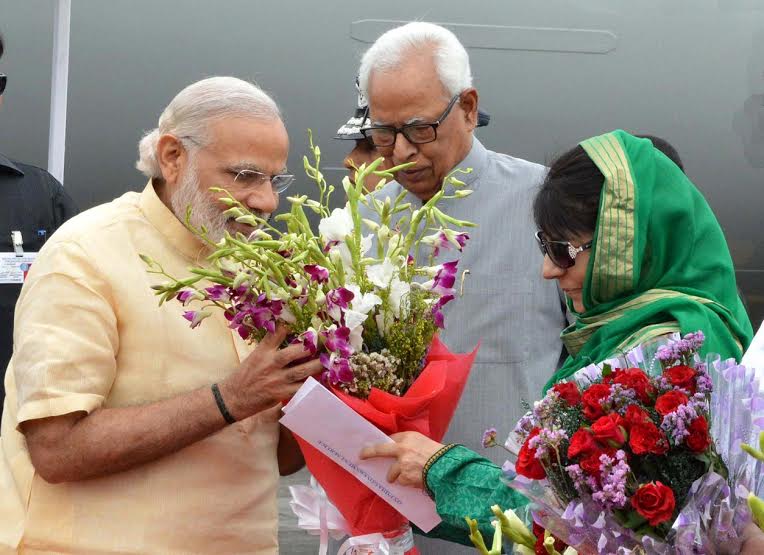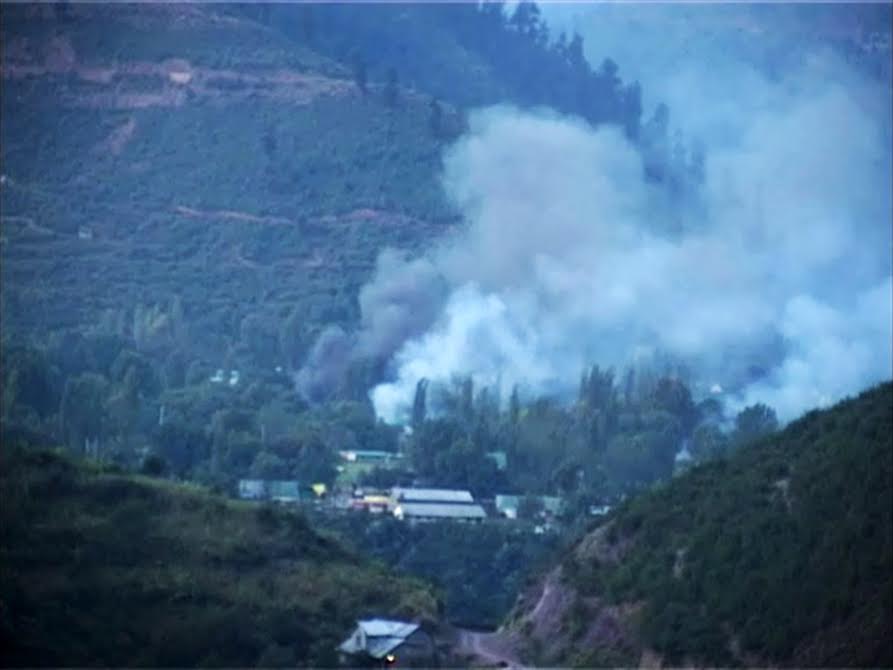Prime Minister Narendra Modi needs a different strategy in Kashmir even as he tries to keep Pakistan out of the Valley, writes Sushil Aaron in The Hindustan Times

The surgical strikes should be seen as an act of negotiation between three parties — India, Pakistan and the US — to enforce new realities along the Line of Control. Delhi’s approach is not without serious risks.
India’s claim of having launched surgical strikes at terrorist launchpads in PoK is now being reckoned as a paradigm shift in bilateral ties. Several consequences flow from this dramatic event for Indo-Pakistan ties and for the political fortunes of the BJP.
Here are some implications and imponderables:
To begin with, the idea of a surgical strike is quite elegant in conception. It effectively tells Pakistan that if it does not recognise the sanctity of the Line of Control (LoC) and uses proxies to make incursions into Indian territory then Pakistan’s territory itself becomes fair game when the Indian State wants to secure its own frontiers.
Pakistan has over the years used moral arguments and militant infiltration to internationalise Kashmir – and in so doing the LoC has come to be perceived, internationally and nationally, as a sort of a legitimately porous frontier rather than be a hardened signifier of two separate State realms. By raiding Pakistan- occupied territory, India symbolically affirms and encloses its own territory, thereby underlining that Jammu and Kashmir is an integral of India. This is national security adviser Ajit Doval’s “defensive offence” in action.
Two, the timing and choreography of the operation are clever, at least from the Indian State’s perspective. Barack Obama’s presidency which is winding down, values India as a weapons importer and as a partner while it establishes security arrangements in Asia that balance China while Washington’s patience with Pakistan on terrorism has been wearing thin for years. Getting out a joint statement with national security adviser Susan Rice around the time the strikes were conducted, and that too one which condemns the Uri attack and reiterates “our expectation” that Pakistan take effective action against Lashkar-e-Taiba, Jaish-e-Mohammed and others is a striking symbol of shared Indo-American perspectives on Islamabad.
Three, the surgical strikes work brilliantly for the BJP and Narendra Modi in India’s domestic politics. Finally, the government has come up with a measure that forces the Congress and the rest of the Opposition to endorse its Pakistan policy, at least an aspect of it. The strikes delight the BJP’s base; its supporters on social media, who have been desperate for action, are over the moon. The attention, meanwhile, has decisively moved away from Kashmir, the Valley’s suffering over the last two months now barely figures in national discourse. The spectre of war also works to silence liberals in India – and the longer this crisis prolongs the longer the BJP is able to delegitimate contrarian voices, not just on Pakistan but on a range of other issues.

The BJP is thus holding all the aces at the moment bilaterally and domestically. This approach is, however, not without its risks. It all depends on how Pakistan will respond — and its behaviour will be unpredictable.
Pakistan is for the moment trying to deny that the strikes happened at all but that approach does not serve its politicians and the army well at all. India’s narrative that its special forces were in Pakistan-occupied territory for over four hours is bound to generate lots of questions in the country. Could its army not detect the activity within and Indian preparations further afield along the LoC? Is this like the US Navy Seal raid that killed Osama bin Laden all over again? Imran Khan has already thundered that he will give a befitting response to Modi that Prime Minister Nawaz Sharif cannot muster. Pakistan army chief Gen. Raheel Sharif has become a cult figure owing to the successes against the Pakistani Taliban during his tenure – and he would not like to bow out as the man who allowed an Indian raid under his watch go unpunished. There are reports that 40-45 terrorists were killed in India’s strikes and that will generate pressures from militant and religious groups.
In other words India’s surgical strikes, either in the material damage they caused or their narrative representation, exerts pressure on a cluster of relationships within the Pakistani establishment that includes politicians, the military and the militants, forcing them to reconsider their strategy towards India.
Islamabad’s quandary is that it cannot immediately escalate since it is unsure as to how far India will take the conflict. If it ramps up militant strikes in Kashmir, it will only prove New Delhi’s argument about terrorism and isolate Pakistan further internationally.
The Modi government understands Pakistan’s dilemma and wants it to serve the specific end of sanctifying new realities along the LoC. It does not want to press Islamabad too much and has pointedly kept the focus of the operation and the narrative on the terrorists, not the Pakistan army. It is insisting that this a one-time action; Doval reportedly conveyed to Susan Rice that New Delhi will take no further action if Islamabad does not escalate the situation. In a way, the surgical strike has been set up to reaffirm the sanctity of borders and draw the Americans in to enforce the new status quo – since the latter have an interest in preventing an escalation. India is, in effect, expecting the Americans convey to Islamabad that it must let the surgical strikes pass and let Modi capitalise on this bit of theatre since Pakistan brought the situation upon itself by allowing or staging the Uri attack.
All this said, India does not quite have all its equations sewed up. As mentioned, domestic pressures can compel Pakistani state actors to respond. Nationalist pride, religious machismo and calculation of political fortune can thwart rational State policy as we well know. What if Rawalpindi retaliates with a terrorist strike or worse what happens if a ‘non-State’ group beyond the reach of the Pakistan State senses its apocalyptical chance and tries to drive a wedge again between two States by staging a dramatic terrorist attack? How then will India respond? Will it take on the Pakistani State for the actions of ‘non-State’ actor? How deep will the next incursion go?
Some in India will claim that there is no such thing as a ‘non-State’ actor beyond the control of the Pakistan army. That is a theory to be tested now – and is a big assumption to make when assessing the consequences of a surgical strike, especially if one of the outcomes is war.
Right now surgical strikes have been crafted as a tightly controlled experiment, as an act of negotiation between three parties, India, Pakistan and the US to reconcile with a new status quo on the LoC. The experiment works if all three accept the rules of the game. India will have prevailed if Pakistan does not act beyond cross-LoC firing in the coming days.
But there’s one other thing New Delhi must note. Just as it expects Pakistan to scale back there’s a sphere where it needs to do the same as well. In Kashmir. Right now the world is looking away from what happened in the Valley since early July. But if Delhi continues to crackdown on Kashmiri civilians in the winter after it has made its point with Pakistan on Uri, then there is bound to an indigenous militant blowback that will generate new cycles of instability and over time complicate international opinion.
As said, the Modi government is now in the driver’s seat. It is trying out an experiment with surgical strikes that may or may not go to plan. It needs a different strategy in Kashmir even as it tries to keep Pakistan out of the Valley.
(This article appeared in the Hindustan Times on September 30, 2016)
Note: Views expressed in this article are those of the author and do not necessarily reflect the official policy or position of the Kashmir Life.














